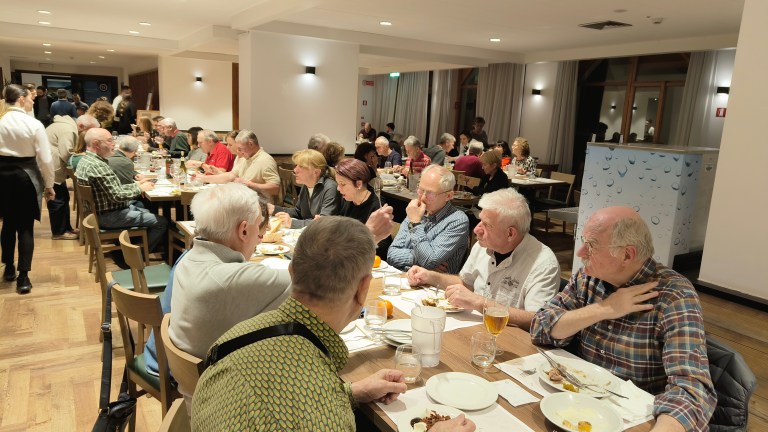Przyslala Basia Jaworski

Moritz von Schwind: Der Sängerkrieg
As a young singer you could, so to speak, take part in a singing competition every week. Everywhere there are opportunities to sing yourself into the spotlights. Great news for the many talents that are around. But not everything is necessarily positive.
It is claimed that ‘the public’ is fond of competitions and I believe that. Already in antiquity people were able to keep their minds at rest with bread and games; and all kinds of competitions were organised, for poets and philosophers, but also for singers. The tradition lived on, and singing competitions also found their way into operas. Just think of Die Meistersinger or Tannhaüser. You were always rewarded for your singing skills. Once you were allowed to take the beautiful bride home, nowadays your price has become more tangible. A sum of money, a contract with an opera house and secret hopes of fame and a great career. No wonder, then, that there are so many competitions.
But: aren’t there too many now? Shouldn’t there be an age limit? Can you compare a singer who already sings at big houses with a starting colleague? Do competitions bring what the often very young participants have hoped for? Does it help them in their careers? You win and then? And how do you deal with your loss?
All these questions made me decide to take a closer look at the phenomenon of ‘singing competitions’ and to talk to some directly involved.
Mary Rammeloo (soprano):
 Een bijschrift invoeren
Een bijschrift invoeren
In 2008 Maartje Rammelo was one of the semi-finalists of the IVC, where she eventually won the Staetshuijs Fund Prize. At the Belvedere Competition in 2013 she reached the semi-finals. She also won an engagement in Essen. Rammeloo was a finalist at the Montserrat Caballé Competition in Zaragosa and at the Wilhelm Stennhammer Competition in Sweden.
“Taking part in competitions gives a double feeling. It inspires and is exciting, but results are either terribly predictable or completely bizarre.
You always participate with the aim to show the best of yourself and hope that this is sufficient to convince a jury of your quality: but how can you judge the skill and artistry of a musician in a competition? In an audition for a production, an artistic team has a concept and an idea about who should play a role. But in such a contest, several judges, each with their own taste, compare apples with pears: a Figaro with a Tosca, a Handel countertenor with a Wagner soprano.
Not to mention the intrigues and the hidden agendas of some judges, the chauvinism in regional competitions and the exoticism/commercialism of sometimes choosing singers who don’t necessarily give the best performance, but who are very interesting because of their origin or appearance.
So why participate? It gives you a chance to try out new repertoire and get feedback. It’s a chance to sing for the most important people in the profession, for whom you’ll never get an audition arranged in real life without a brilliant agent who guides you in.
I haven’t yet participated in a competition that didn’t either involve me in work or contacts, or gave me some useful feedback. And that is ultimately what we want: to work! Sing! To stand in front of an audience!
The prizes make it easier to practise your profession. From a financial point of view, because our profession doesn’t make us rich in the first few years, and also in terms of fame, which in turn can create more work. But just as well there are plenty of prize winners of whom we will never hear from again and singers who have never won a competition that now have a world career. At the end of the day it’s all about the long haul, not about the quick success…
What is always very difficult with competitions, is choosing your repertoire. First of all, few singers are 100% sure of their ‘fach’. Most of them doubt again and again what judges would like to hear them in.
Each competition has its own requirements. So many arias in total, so many of them from the list of compulsory works, of which your first round may only last for so many minutes and the jury detirmines the number of arias for the next round, and so on. Terribly difficult. Because you want to be heard as much as possible. Different languages, different styles, different techniques and topics.
There are also a number of competitions that offer more than just the competition element. I now also encourage my own students to look out for those. Contests like the IVC that use things like a youth jury, master classes, concerts and lectures to make it a real singing festival. And these are often the competitions that keep in touch with you in the years that follow. Who are committed to the further development of the singers. But unfortunately there are very few of them…
I have learned that if you sing what you feel comfortable with and what you are really good at, then at least one person will be happy after your performance. Namely you.
Maartje Rammeloo sings ‘I want magic!’ from The Streetcar named Desire by André Previn:
Kategorie: Muzyka
